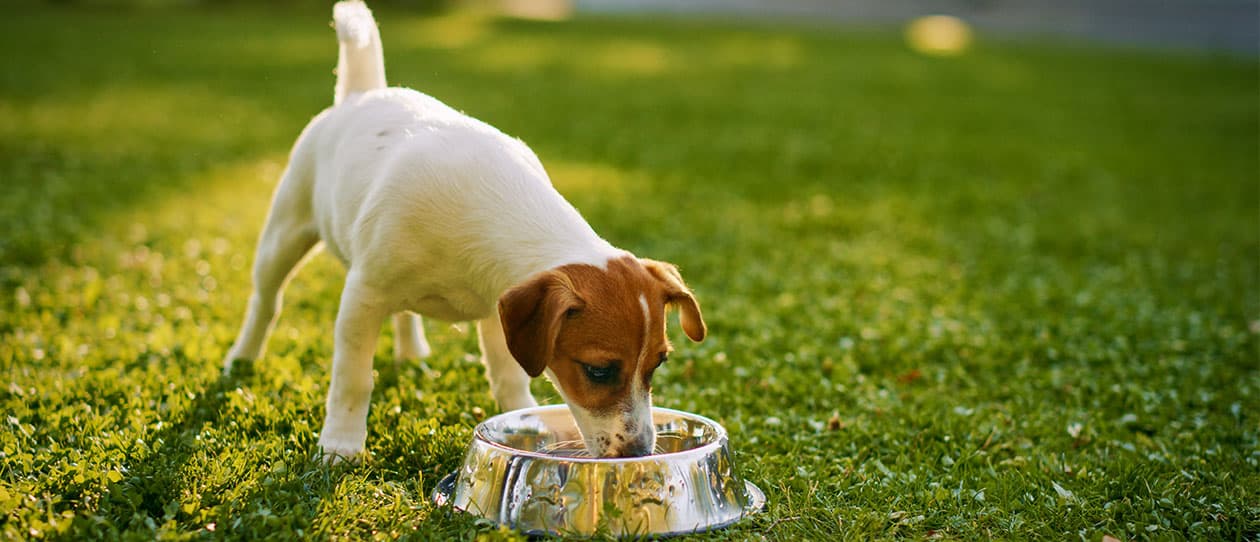
- A Guide To Perfect Your Pet's Health/
- Manage Your Dog's Digestive Health/
- Is Milk Good For Dogs?


Kids grow up drinking a glass of milk with dinner and are told “It will make you big and strong,” and “It’s good for your hair and nails.” Indeed, cow’s milk is packed with protein, vitamin D and calcium, all of which are important for bone development, strengthening nails and promoting hair growth. It’s also a good source of other nutrients, including B vitamins and iodine, plus magnesium, which is important for muscle function. From helping lower blood pressure to preventing osteoporosis and supporting healthy weight maintenance, studies show most people enjoy all manner of health benefits from drinking milk in appropriate amounts.
But is this nutrient-rich drink as good for our dogs as it is for many of us?
Is milk safe for my dog?
An increasing number of people around the world choose not to drink cow’s milk, whether for personal taste or diet. Some are intolerant, as they lack the enzyme (lactase) to digest milk’s sugar (lactose), others may be allergic. Puppies generally have lactase, which is why they’re able to drink their mother’s milk while nursing. But they produce less lactase as they’re weaned, and can stop creating it altogether as they mature, leading many dogs – more commonly so than humans – to become lactose intolerant.
Any lactose-intolerant person will tell you how uncomfortable they feel after consuming dairy: gut distress, diarrhea, bloating, flatulence, vomiting. It’s the same for dogs, with the lactose passing through their gut undigested.
The degree of symptoms varies between dogs. Some may not be intolerant at all and thus show no signs of distress, while others may have mild symptoms and still others a severe clinical reaction – compounded if the intolerance is paired with an allergic reaction.
Consuming large amounts of full-cream milk can have additional side effects related to the high levels of fat in it, from obesity (and all the associated health issues) to pancreatitis.
If your dog has chronic skin or digestive issues or is intolerant or allergic, skip dairy altogether. Otherwise, the occasional lick of your ice-cream won’t hurt.
Are other milks good for my dog?
Choosing which milk type to accompany your coffee these days can be overwhelming. If dairy-intolerant people can drink most of them safely, then can dogs? Here’s a guide.
• Goat’s milk: This milk contains many of the nutrients found in cow’s milk (often in higher doses) but has 12 per cent less lactose. Which means that if your dog has a mild lactose intolerance, they might be better able to stomach goat’s milk. This milk does, however, contain more fat and calories than cow’s milk, and so should be consumed in moderation. It’s important to note that goat’s milk is not a complete canine meal but can supplement your dog’s diet.
• Almond milk: This lactose-free, nutrient-rich milk might seem like a natural choice if your dog is intolerant to cow’s milk. Indeed a small amount is often fine, but choosing the right brand is critical. Most almond milks are processed and high in sugars, preservatives, artificial flavours and calories – often 100 calories a cup, in fact. To put that into perspective, if your adult dog weighs 9kg, 360 calories is sufficient for an entire day. Also check the ingredients to ensure it doesn’t contain xylitol, an additive toxic to dogs.
• Soy milk: Lactose-free soy is likewise generally safe to feed your dog and is actually added to many pet foods as an extra source of protein. That said, it’s one of the top food allergens for dogs, and can trigger severe allergic reactions in some pets. Like almond milk, it’s also high in calories and may contain added sugars, which can have repercussions for obesity if consumed in large amounts. As with almond milk, make sure the product doesn’t contain xylitol.




